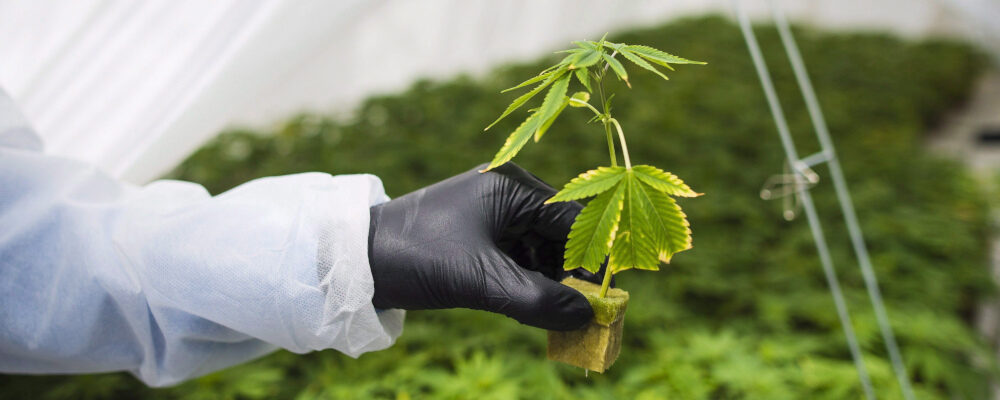Canada’s Conservative Party under its new leader Pierre Poilievre needs to decide what it thinks about cannabis. It is arguably the most consequential domestic policy reform of the Trudeau government, and if there is a change of government in Ottawa, the incoming administration will inherit all of the costs, complaints, and challenges of the legalization model that the Liberal government left behind.
The fact of legalization—creating a regulated, adult-use model for cannabis—is not contested. The industry has a raft of understandable complaints about how the reform has worked out in practice, and the pledges of what legalization would deliver have still not been met in full. But Canadian public opinion is settled—large majorities favoured legalization before it took effect and even larger majorities support it now. This includes older voters and those who voted Conservative. There would be no traction in pledging to reverse the whole agenda or to make it harder for Canadians to legally consume.
This leaves the Conservatives with an opportunity to improve on the framework of the Trudeau government without feeling like their own voters want them to roll legalization back.
The Tory Party is already making solid inroads with the younger electorate. Another dynamic that is no longer a factor is the gratitude of voters who supported legalization in 2015 and were expected to reward the Liberal Party in 2019. Even if it remains one of the only positives that voters spontaneously mention in focus groups about what Trudeau has delivered, cannabis legalization was never a dividing line with the Opposition and is no longer a cause that Liberals can rely on to mobilize their electorate.
The Canadian model
For a policy that will have a social and economic impact for decades to come, the Canadian model is still evolving, but four years after legal sales started, the overall policy impact is already a good one: consumption is up slightly (not drastically), but illicit market share is way down; drug-impaired driving has not risen (as far as we can tell from current statistics), and the law change has directly led to the creation of hundreds of thousands of new jobs and billions in tax revenue. We have also seen progress towards important public health goals like increasing product traceability and quality, and the regulation of previously grey market behaviour like dispensaries.
None of this would be all that apparent if you spoke to people in the sector.1The delegates who gathered to debate the state of the Canadian industry at the LIFT conference in Vancouver last month were downbeat. Delegates at the last conference—in January 2020 just before the world changed—were confident that the industry was expanding and new brands were thriving. Investors back then were exuberant about the growth potential in both Canada and the USA and the soaring stock prices of companies like Tilray were generating headlines around the world.
But after the bubble burst and the industry endured two years of disastrous performance by cannabis companies in the public markets, the failure of major licensed producers, the crippling impact of excise taxes, and the prospect of U.S. federal legalization looking as far off as it ever was, the 2023 conference was much more muted and introspective, and delegates seem much more realistic. Campaigns to promote craft producers and to rally together as an industry to push for excise tax reform to make it easier for smaller producers to thrive were front and centre. Many licensed producers and retail brands have gone bust since 2020, and some big licensed multi-national suppliers have retrenched and left investors with massive losses, but the industry as a whole is now talking in real terms about jobs created and a story about rural development and diversification.
The complaints from the sector seem quite justified. The taxation model is hopeless and needs to be scrapped and replaced. It is not supporting public health goals (with excise taxes levied by weight, so not discouraging higher potency products), and it is set too high to enable independent producers to become profitable, let alone to innovate. The marketing restrictions were deliberately tight, but they have prevented the licensed sector from competing with enough of the illicit market. And the taxation of medicinal cannabis has alienated those who quite reasonably wanted a clearer demarcation between therapeutic products and what consumers were being sold by recreational producers.
Federal regulations aside, even the provincial dimension has generated a lot of disquiet, with anti-competitive government-owned wholesalers in many provinces taking big margins and preventing cultivators and retail stores from getting quality product to consumers at a reasonable price—a form of gatekeeping that free marketeers should oppose. Small steps to improve consumer choice with the relaxation of rules on retail storefronts and home-delivery options in Alberta, and “farmgate” sales to enable craft producers to sell direct in British Columbia, do show some progress is being made, but there is still a lot of regulations that have proven unworkable and need fixing.
Conservative opportunity
The Liberal Government is conducting a long-delayed “legislative review” of the original Bill C-45, but there is still much outside of that review’s scope. So under a government led by Poilievre in 2025, how will Conservatives view the industry that Trudeau created, and what policy changes might align with conservative principles? Is there a policy agenda on cannabis that will speak to the supporters the Tories already play to, and the voters under 40s that they need to attract to form a working majority at the next election?
Not many people want to see an Americanized, ultra-commercialized model, with few restrictions on advertising. Nor do consumers appear to want a commoditized and oligopolistic industry that displaces craft producers or limits access to just government-run stores. Canadians in this industry want to see more diversity, but as Dan Sutton, one speaker at the LIFT conference remarked: “Diversity in the industry… means empowering small-town cannabis.”
Conservatives should be on the side of small producers and in favour of regulations that enable what younger, responsible consumers want, like places to consume together socially, support for craft growers close to home, more sustainable production, and better access and product options.2A more free-market retail model like the one adopted by the Government of Alberta—a province with as many stores per capita now as Colorado—might not suit everyone, but there is no doubt that this approach has generated more jobs and taken a bigger bite out of the illicit market.
Federal politicians will want to leave as much of the politics of cannabis to the provinces, but there are votes in cannabis insofar as the consumers are now part of the mainstream electorate. There are key ridings where enough voters use cannabis on a regular basis that they would be important to any future election and Tory politicians should be careful not to alienate them in any way. There are also certain communities that are still hostile to cannabis, and where stigma around cannabis use is more pronounced—including in new immigrant communities. So keeping decision-making in the hands of municipalities over issues like where cannabis stores can open makes sense—especially if online channels and home delivery are eventually licensed everywhere.

The quid pro quo on legalization was clear: regulation and taxation would protect consumers, and at the same time deliver new revenues which would partly be spent on more and better education for young Canadians, and increased drug treatment. We do not yet know if rates of cannabis use disorder are rising, but it is not clear that much of the tax revenue has flowed back into expanded treatment or better education initiatives.3If you don’t count the “Drug-free Canada” radio ads.
Then there is the biggest missing piece: smarter enforcement. Seizures still happen, but it is not clear if law enforcement has received any dividend with additional resources for border agents and police to improve interdiction of illicit trafficking or organized crime. Canadians would expect that and the legal market deserves it. Parents should feel confident that their teenage children are not being targeted by brazen street dealers. It is no surprise that the number of possession arrests under the new law is very low (and has collapsed in the last few years compared to pre-2018 rates), but there also needs to be visible enforcement of street dealing and breaches of the licensing laws.4There is little evidence that prosecutors are using the additional penalties that were made available for people caught trading in illegal product or selling legal cannabis to underage consumers.
A Conservative policy agenda would look to strengthen enforcement around the illicit market, which would help shore up the legal industry. They could also commit to investing more of the revenue from legal producers into wider drug prevention and treatment programs focused on recovery, and improved roads policing so risks of impaired driving can be kept in check. They could also revise the federal taxation regime to lower the overall burden on small producers and gear it towards potency. This could raise the same if not more revenue, but it would also discourage a race to the bottom where producers gravitate towards the most potent, highest THC products.
A future Conservative government should also consider exempting medicinal products from taxation and encourage more insurance plan coverage for these therapeutic products. They could also explore new policies that make it easier to facilitate cannabis production and tourism in rural ridings where new jobs and revenues are always welcome. And finally, they should pledge to keep the minimum age where it is, but keep the rules under review, pending emerging data on adolescent mental health impacts, and the experience of Quebec which has adopted a higher age limit of 21 for legal consumption.
There is little doubt that had it been up to them, Canada’s Conservatives would not have legalized cannabis. But the traditional role for conservatives is not to resist all change but to find the best ways to accommodate social change and manage it in the way that best protects communities and the liberty of individuals. Rather than inheriting the legal industry reluctantly, a future Conservative government in Ottawa should be proactive enough to fix the industry’s problems at home, promote it abroad, and make the market work better for Canadian consumers.
This means Tories embracing their free-market instincts and reviving the original goals of legalization where these have been lost: reinvesting the proceeds into policing and treatment services, taking enforcement of the law more seriously while taking a market-based approach to what adult consumers want, and de-regulating wherever possible. After all, trusting individuals and personal responsibility is a theme for Conservative MPs, and it should guide them when they consider what controls to relax and how to encourage entrepreneurs to invest in this industry.
Stereotypes are widespread when it comes to cannabis. People assume politicians on the Right may not be big cannabis consumers themselves, but even if that is true, many of their current and future voters are. Besides, the personal choices of Conservative MPs shouldn’t blind them to what Bill C45 has allowed Canada to build, well ahead of many other countries: a large, safe, consumer market that has created hundreds of thousands of new jobs, driven up employment in rural areas, and smashed the illicit market.
Conservative politicians should have no qualms promoting any of that.




